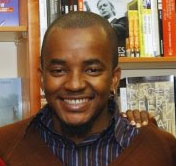Posted on February 5, 2010

'We wish to keep alive the symbolic value of District Six's name as representative of multiple other instances of displacement and forced removal throughout South Africa. The museum space is a living one, dedicated to working with memory: in remembering the events of forced removals, in considering the varied impacts of apartheid legislation on the lives of people and in choosing to focus on historical experience and subjectivity as ways of creating community and shaping society. We believe that the work of remembrance, within the context of the present, has a continuing significance for all South Africans'Â (1)
This is the thinking that informed the conceptualisation of the 'Digging Deeper' exhibition, which is the permanent exhibition of the District Six Museum, by the Trustees, the research and curatorial teams, ex-residents, tour operators and all the stakeholders that have a stake in telling the stories of displacement and evictions. The Museum' methodology of working with various stakeholders and all who had a stake in telling these stories was and is a way to problematise the complex nature of recounting the past in the present and excavating post-apartheid narratives.
Although the District Six Museum is heralded as the great symbol for forced removals, there have been great examples across South Africa where the devastation that lay in the wake of the Group Areas Act legislation that has been remembered and memorialised. The reality, however, is that in a post- apartheid South Africa 'forced removals' now referred to as 'lawful evictions' continue to be commonplace. Whether its farm workers being evicted from a farm where they have lived for all their lives or shack-dwellers that are evicted from either municipal or private property after having occupied the land for years. A recent example is the community that was evicted from the Itireleng informal settlement near Laudium in Pretoria from land owned by the big corporation PPC Cement. The Anti-Privatisation Forum (APF) and the Human Rights Commission are currently contesting the eviction order in the North Gauteng High Court arguing that it was illegal and that it was for the wrong portion of land. Whatever the merits of the case, which are difficult to assess as the matter is still sub judice, the community feels that they have been let down by the government and have been literally left on the streets.
The APF which aims to 'unite struggles against privatisation in the workplace and community' and the Red Cross are assisting those evicted who have been staying in makeshift tents without water, food and blankets (2). This is the lived reality of the many of our people where 'home' is often a very tenuous concept for many families, due to the legacy of a gross lack adequate housing for non-white communities. The reality is that the backlog that needs to be eradicated will take decades, if not lifetimes to families that are desperate for adequate housing. This is not, of course, to underestimate the huge strides that have been made by government in addressing the housing backlog but the need is still great.
These ongoing evictions raise interesting questions about how the history of forced removals is and will be told in our post-apartheid society. In fulfilling the important task of inserting these marginalized histories into our national historical narrative in the present, there is need to an acknowledgement that the displacement of families has not abated. Communities that have instituted land claim for lands and properties lost after 1913 are also still struggling with reconstruction and redevelopment of these lands and broader land reform remains a huge challenge. This has resulted in the space in which these histories are memorialised and remembered being highly politically charged arenas. Where communities are increasingly being forced to become social activists as land rights are the foundation for addressing the broader socio-economic challenges that most communities face.
The challenge that heritage institutions and memorial sites, like the District Six Museum, now face is not only telling these complex and often tragic stories of displacement, eviction and forced removal. They also have to be active agents for social change and engage communities to raise awareness and educate others on the challenges faced by our communities. The model of a 'living museum' of the District Six Museum where histories are continuously debated, negotiated and contested, is a useful prism by which we can reflect on these tragic histories but often not adequate in dealing with the larger political questions. 'Memory' and its attendant associations often gloss over the harsh reality of families having to fend for themselves on the streets. The images of bulldozers and removal trucks destroying people' homes taken during apartheid now gain an added potency and meaning as these images can be seen every other day in the media today. They displace the notion that 'forced removals' are a thing of the past and further disrupt the accompanying narratives of healing, reclaiming, redevelopment and returning to the land attached to these histories.
Heritage practitioners and professionals often lament the lack of public ownership of heritage resources by communities but I think maybe we need to do more beyond our memorialisation of these institutions and sites. It can no longer be enough to just excavate these histories. We have to form partnerships with other civil society organisations, so that heritage institutions and sites are more active actors in addressing socio-economic challenges especially in the area of education and skills development. We need to bring home the fact that in preserving these resources we are not merely remembering the past but we are dealing with the challenges of the present in order to have a more prosperous future where all citizens are afforded the opportunities to be primary actors in our fledging democracy.
UB is a AP correspondent, Research Fellow at the Department of Higher Education and Training and PhD student at Wits. He writes in his personal capacity.
(1) http://www.districtsix.co.za/frames.htm 'Exhibitions: Digging Deeper'
(2) http://www.news24.com/Content/SouthAfrica/News/1059/16a3c6600ef6402ba9e60c5df85f1a5f/19-01-2010-09-07/APF_Eviction_was_illegal, 'APF: Eviction was illegal'Â